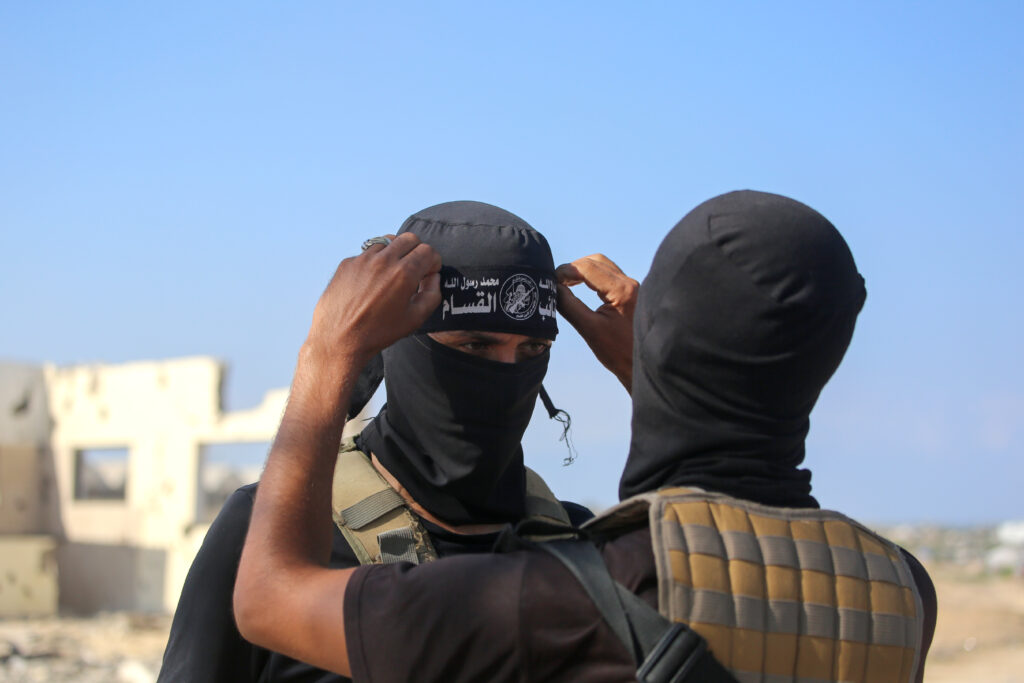AFP Asia Business
China consumer spending falls as pressure on economy builds
China’s consumer prices continued to fall last month, with official data highlighting the battle leaders face in trying to kickstart domestic spending in the world’s number two economy while fighting a trade war with the United States.Beijing has spent recent years grappling with a range of issues that have weighed on growth and consumer activity, …
China consumer spending falls as pressure on economy builds Read More »
Hamas launches Gaza crackdown as Trump vows to disarm group
Hamas tightened its grip on Gaza’s ruined cities Tuesday, launching a crackdown and executing alleged collaborators, even as US President Donald Trump vowed to disarm the group.The Israeli military said the remains of four more hostages held in Gaza had been brought into Israel, a day after Hamas handed over the bodies of four other captives and released the last 20 surviving hostages.Hamas published a video on its official channel showing the street execution of eight blindfolded and kneeling suspects, branding them “collaborators and outlaws”.The footage, apparently from Monday evening, emerged as armed clashes were underway between Hamas’s various security units and armed Palestinian clans in parts of the territory, on the fifth day of a US-brokered truce between Hamas and Israel. In the north of the territory, as Israeli forces withdrew from Gaza City, the Hamas government’s black-masked armed police have resumed street patrols.When busloads of prisoners freed from Israeli jails arrived in Gaza on Monday, fighters from Hamas’s Ezzedine al-Qassam Brigades provided crowd control.Meanwhile, a Hamas security unit has been conducting operations against armed clans and gangs, some alleged to have Israeli backing.”Intense clashes broke out — and are still ongoing at the moment — as part of efforts to eliminate collaborators,” said witness Yahya, who asked not to be named in full for fear of retribution.- Explosions and arrests -Another Gaza resident, Mohammed, told AFP: “For long hours this morning there were heavy clashes between Hamas security forces and members of the Hilles family.”The fighting was in Shujaiya, in the east of Gaza City, close to the so-called Yellow Line, behind which Israeli units still hold roughly half of Gaza.”We heard intense gunfire and explosions, and the security forces arrested some of them. We support this,” Mohammed said, also asking not to be named in full.A Palestinian security source in Gaza told AFP that Hamas’s security body, a recently established unit whose name translates as “Deterrence Force”, was conducting “ongoing field operations to ensure security and stability”.”Our message is clear: There will be no place for outlaws or those who threaten the security of citizens,” he said. – Troops open fire -Hamas has, since it crushed rival Fatah in armed clashes in 2007, been the dominant Palestinian faction in Gaza.Israel insists Hamas can have no role in a future Gaza government, must hand back the remains of all deceased hostages and eventually disarm. Prime Minister Benjamin Netanyahu said Tuesday that the US plan for Gaza was “very clear” that after Hamas returned the captives it would commence “both demilitarisation and disarmament.””First, Hamas has to give up its arms, and second, you want to make sure that there are no weapons factories inside Gaza. There’s no smuggling of weapons into Gaza. That’s demilitarisation,” he said in an interview with CBS News. US President Donald Trump’s 20-point plan says that Hamas members who agree to “decommission their weapons” will be given amnesty.”If they don’t disarm, we will disarm them,” Trump told reporters at the White House a day after visiting the Middle East to celebrate the Gaza ceasefire.”And it will happen quickly and perhaps violently.”The document, endorsed Monday by world powers at a Trump-chaired summit in Egypt, says Gaza will be demilitarised and Hamas have no leadership role.- Reassuring presence -But for many Palestinians rebuilding their homes and lives Tuesday amid Gaza’s rubble, the sight of the militants was reassuring.”After the war ended and the police spread out in the streets, we started to feel safe,” said 34-year-old Abu Fadi Al-Banna, in Deir al-Balah, central Gaza.Hamdiya Shammiya, 40, who was driven from her home in northern Gaza by the fighting to seek shelter in the southern city Khan Yunis, agreed.”Thank God the war is finally over. We’ve started to breathe a little,” she said.While Palestinians sought stability, Israeli families stepped up pressure for the return of the remains of deceased hostages still held in Gaza.- Bodies identified -The deal called for the return of all the missing — living and dead — and hostage families and Israeli leaders have demanded Hamas comply. Of the deceased hostages who have been returned, the military named two as Guy Iluz, an Israeli national, and Bipin Joshi, an agriculture student from Nepal.Later, the Families Forum, which campaigns for the release of the hostages, identified the two others as Yossi Sharabi and Daniel Peretz, an officer in the Israeli army.”Now we can finally bring closure to the nightmare that began over two years ago, and give Yossi the dignified and loving burial he deserves,” his wife Nira Sharabi was quoted as saying by the forum.In Tel Aviv, people gathered to celebrate the liberation of the living hostages and demand the return of the others’ remains.”I don’t know what to feel because I didn’t think (we’d) reach this day where all the living hostages will return,” demonstrator Barak Cohen told AFP.”But still I see great difficulties in returning the remaining dead hostages,” he said.burs-dc-jd/csp/tym/tc


